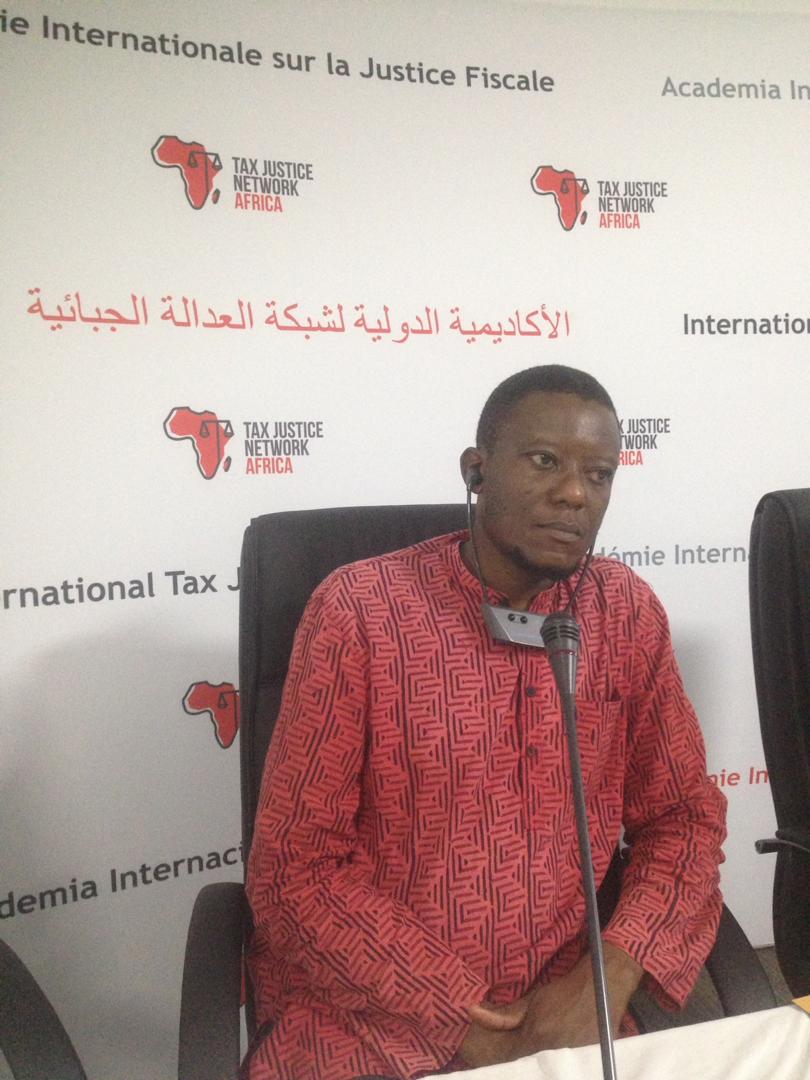By Davison Kaiyo
African countries have been urged to plug the haemorrhaging of financial resources through aggressive tax planning and avoid increasingly opening themselves to tax havens’ exploitation.
Speaking at the opening ceremony for the sixth edition of the International Tax Justice Academy in Dakar Senegal running from the 24th to the 28th of June 2019, the Director of Tax Justice Network Africa, Mr. Alvin Mosioma said that African countries continue to lose revenue due to double taxation avoidance agreements between African Countries and Tax havens.
“Double taxation avoidance agreements (DTAA) provide loopholes for tax avoidance practices by multinational corporations (MNCs) that undermine domestic resource mobilisation and development efforts,
“By undermining African countries’ ability to tax wealthy and MNCs, not only do the lopsided
DTAAs lead to revenue loss but also do they pressurize African states to shift the tax burden
to the poor,” said Mr. Mosioma.
Double tax avoidance agreement (DTAA) is a tax treaty signed between two or more countries to help taxpayers avoid paying double taxes on the same income.
A DTAA becomes applicable in cases where an individual is a resident of one nation, but earns income in another and this result in many big businesses evade paying tax citing DTAA.
“Double tax agreements particularly those signed with Tax havens such as Mauritius severely erode the tax bases of poor countries by encouraging aggressive tax avoidance,” said Mosioma
A tax haven is defined as a country that offers foreign individuals and businesses little or no tax liability in a politically and economically static environment. Tax havens also share limited or no financial information with foreign tax authorities. Tax havens do not require residency or business presence for individuals and businesses to benefit from their tax policies.
Use of tax havens results in a loss of tax revenues to countries like Zimbabwe which are not tax havens.
Countries such as Kenya and Senegal have annulled their DTAA they had entered with Mauritius upon realisation of the negative impact of a DTAA agreement on the revenues of a country.
This calls comes at at time when Zimbabwe is in the process of simplifying its tax system while the Zimbabwe Revenue Authority (Zimra) continues to roll out operational reform strategies aimed at enhancing voluntary compliance and increasing domestic resource mobilisation.
The widening of the tax base requires a high level of compliance by companies, which will result in enhanced collections by Zimra for the benefit of the fiscus and the country at large.
Zimbabwe through the ministry of finance is committed to current and future tax reforms geared at widening the tax base so that the tax burden is shared by all — including by the informal sector for that matter.
Going forward, therefore, the policy thrust is to continuously reform the country’s tax system so that taxes are modernised or restructured to broadly capture all economic activity/transactions — including the informal and shadow ones — raise revenue, close the fiscal deficit and restore confidence through low budget deficit and reduced domestic debt, plugging all the loopholes such as tax evasion and avoidances that is brought about by double taxation agreements entered by tax havens.






